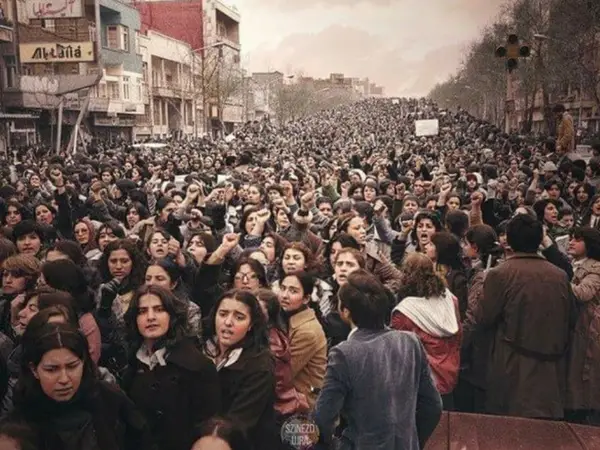As the Iranian regime closed at least 2,000 businesses since late March for women’s refusal to wear compulsory hijab, tens of thousands have lost their jobs.
Reformist Shargh daily in a report Thursday said statements by the police and other officials about the implementation of a campaign against hijab-lessness indicate that around 2,000 businesses – including restaurants, cafes, tourist accommodations, retail shops and even a counseling clinic and a gym -- have suffered closure in the past month only.
On Tuesday hardline media reported that some businesses, mainly restaurants and cafes, owned by celebrity artists and popular footballers have been shut down or received warnings over defiance of hijab rules by their staff and customers.
Authorities also announced on the same day that they had shut down Opal Mall, a massive modern shopping center with over 450 businesses in Tehran. Shargh said the closure of the mall alone has resulted in the loss of around 2,500 jobs.
Woman has a seizure at a shopping arcade in northern Iran after hijab enforcers fire their guns during a scuffle with business owners.
At the start of the month, Iran’s 83-year-old ruler Ali Khamenei reiterated the regime's stance on hijab, which became mandatory after the establishment of the Islamic Republic in 1979. He said: “Discarding hijab is haram (sinful) based on Sharia and also politically."
His declaration was a clear signal to all state and religious authorities to do anything it takes to re-establish control over women who are increasingly joining the civil disobedience movement against forced hijab rules.
However, legal experts say closure of businesses is unjustified even based on the Islamic Republic’s own laws and the Sharia.
“Has anyone ever heard of a street being banned because of a murder that happened there? Or is it possible to shut down a government office because of corruption? … Businesses cannot be sealed because someone removes their hijab there,” Mohammad Mansouri-Boroujeni, a professor of law at Esfahan University wrote in a commentary on April 20.
Mohsen Borhani, an Islamic law expert and lawyer, argued in a tweet that nowhere in Sharia one can find reasons to justify the ban on selling commodities to hijab-less women or to shut down a shop if a hijab-less woman is spotted there. “You neither abide by the law, nor the Sharia. It’s flustering!” he tweeted April 18.
The police have also said they are prosecuting those who promote defiance of the compulsory hijab on social media and have warned hundreds of imminent prosecutions, placed hundreds of “hijab promoters” on the streets to warn women, and banned entrance of unveiled women to museums and other public venues.
Hijab banner in Tehran says it is mothers’ legacy for their daughters.
Tehran municipality has recently put up hundreds of banners on the streets to promote the hijab. “Hijab is the legacy of mothers,” one such banner which shows a mother donning a black veil on a very young girl says while another equates opposition to the compulsory hijab to destroying “the foundations of families.”
“My mother did not wear the hijab. Neither did my grandmother. I’d like to adhere to my own heritage,” a woman said in a video of one of the hijab banners she sent to Iran International.
In a tweet with a photo of the woman who protested the compulsory hijab, another woman said fighting against the compulsory hijab was “mothers’ legacy”
The recent campaign to enforce hijab rules has caused some violent incidents involving pro-hijab vigilantes and women who defy it. A 60-year-old woman had a cardiac arrest this week when a fight broke out between vigilantes and members of her family over hijab.
A member of the family of Kolsum Oftadehpour told Iran International TV that there was no autopsy and authorities did not allow them to see the body before and during the burial which they carried out without the family’s involvement. The family have been threatened not to talk, he said.
